Menu
-
- Home
-
Hair Care
-
Natural Shampoo Bars
- How To Use A Shampoo Bar
- A Complete Guide To Shampoo Bars
- 5 Things To Check When Buying Shampoo Bars
- Purple Shampoo 101: A Comprehensive Guide
- Can Shampoo Bars Damage Hair?
- Essential Guide To Curly & Afro-Textured Hair
- Best Shampoo for Your Hair? Liquid Shampoo vs. Solid Shampoo
- Bad hair day? Your Postcode Could Be The Root Cause!
- Natural Conditioner Bars
- Match Your Hair
- Bathroom Accessories
-
Natural Shampoo Bars
-
Body Care
-
Equine Care
-
Canine Care
-
Wholesale
-
Hospitality
-
- 01367 242592
- Login
-
GBP

How To Go Plastic Free, Like Us!
5 min read 3 Comments

Can You Imagine What One Ton Of Plastic Waste Looks Like?
The size of a truck?
Or a house?
Well, one ton would take up about 30 cubic meters of space in a landfill. This is the size of a dumpster measuring 22' long x 7.5' wide x 6' tall.
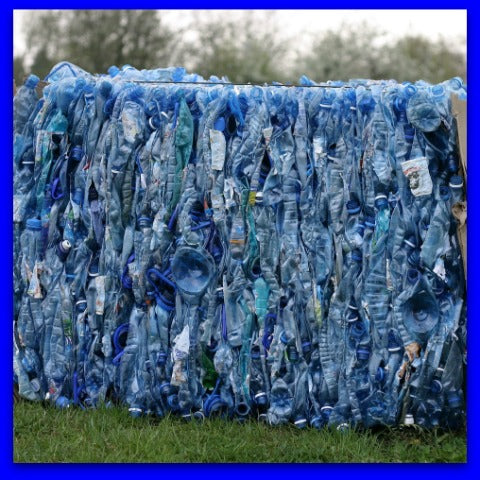
The bundle shown above is just 1 cubic meter in size so imagine a bundle 30 times as big!
Then, if you can, imagine 8 million dumpsters that size full of plastic going into the ocean every single year. Because that's what happens right now. Yes, every single year. That is a shed load of plastic!
8.3 billion metric tons of plastic has been produced since plastic was introduced in the 1950s of which 79% of that plastic still sits in landfills or the natural environment. A small amount has been incinerated or recycled.
At least 14 million tons of plastic end up in our oceans every year. Many countries lack the infrastructure to prevent plastic pollution such as: sanitary landfills; incineration facilities; recycling capacity and circular economy infrastructure; proper management and disposal of waste systems.
When plastics end up in landfills, they aren’t harmless. They break down into tiny toxic particles that contaminate the soil and waterways and enter the food chain when animals accidentally ingest them.
Researchers in Germany indicate that terrestrial microplastic pollution is much higher than marine microplastic pollution - estimated at four to 23 times higher, depending on the environment. This could ultimately have adverse health effects on humans and animals.
No wonder 90% of sea birds have plastic in their stomachs and 700 marine species are now threatened by its presence.
If we carry on at this rate, by weight alone, in 2050 there will be more plastic than fish in the oceans.
The Emergence of The Plastic Age.
So let's first point out a few astonishing facts about plastics. This will also highlight some simple things we can each do to stop plastic taking over the planet.
Everyone considered plastic to be amazing when it was first invented. A miracle substance championed by the chemical and manufacturing industries.
Instead of using natural products like wood, metal, cotton, leather, ivory and silk, humans could substitute plastic. Doesn't that sound a little ironic now?
You found plastic in the early telephones, in radio cabinets, in chess pieces, as well as in the form of nylon for stockings and toothbrush bristles.

With the onset of World War 2, in everything from combat helmet liners to parachutes, cockpit windscreens to gun sights you now found plastic.
Post war, plastic production advanced on a massive rising scale. Such items as disposable cups, cutlery and plates became commonplace. Advertisements appeared for an improved and more convenient lifestyle based on a new disposable economy. A freedom.
As a raw material, it surpassed aluminium in volume in the 1960’s. Then it surpassed steel in the 1970’s, continuing to grow with 51.5m tons of plastic manufactured in 2010. That's a lot of dumpsters.
Unfortunately, as useful as this new 'miracle' material was, no-one thought through its life-cycle. Does that sound familiar?
Two million plastic bags are in use around the world every minute. Each of these is only used for an average of 15 minutes. Yet it will be with us as garbage for up to 1,000 years? Does that still sound like a miracle?
Every plastic bottle, with an average use of 12 minutes, will be with us for 450 years.
The development of disposable diapers came after the Second World War, due to a cotton shortage. They contain plastic too. They can also take upwards of 250 years to decompose. That's long after our great, great grandchildren will have lived and died.
We can’t get rid of the stuff, yet we’ve produced more plastic in the last ten years than the whole of the last century.
So Why Does It Matter What We Put In The Oceans?

Well, the problem is two-fold.
There are two specific types of plankton; phytoplankton (plants) and zooplankton (animals).
Phytoplankton produce half of the world’s oxygen through photosynthesis. They take in carbon dioxide and releasing oxygen into the water. The other half by trees and plants on land.
Through photosynthesis, the oceans have absorbed a quarter of all the planet’s carbon released as CO2 from fossil fuel burning.
These vital organisms, phytoplankton, are now swimming and feeding in a sea of plastic.
According to marine biologist Miriam Goldstein, we are killing them off. Because this is occurring in the oceans it is far less visible, but more devastating for the earth, than deforestation.
The tiny plastic particles that are floating around in the oceans are not bio-degrading. They are photo-degrading. They are breaking down into tiny microscopic sized pieces. These are then being mistaken for food by zooplankton, fish and whales.
What’s worse is these tiny plastic particles attract harmful toxins, such as pesticides, that cling to them and are then ingested by micro-organisms.
As they get eaten, this results in higher levels of toxicity as they move up through the food chain. They will finally find their way to our dinner tables.
In the oceans whale excrement fertilizes the phytoplankton as it grows. Without whales there would be far less phytoplankton and oxygen.
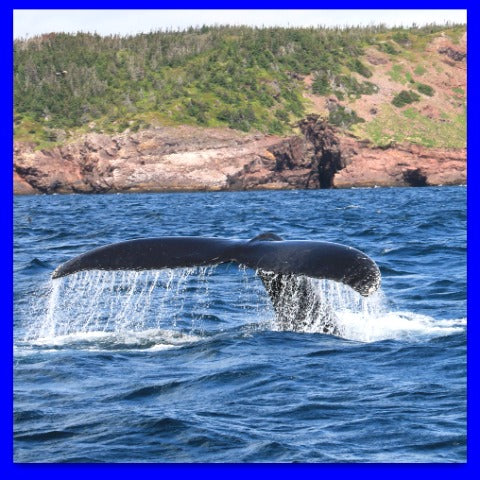
By 2021 we’re expected to consume half a TRILLION plastic bottles each year.
This is far more than recycling can cope with, let alone our environment and oceans.
For example, only 7% of plastic used in the US is recycled - ‘dirty’ plastics with any residue are not.
A simple used ketchup bottle is considered too contaminated to be recycled. They aren’t recycled as it’s too expensive to do so.
A major problem is with one-time use plastic.
The obvious items are plastic bags and water bottles. But one-time use also includes many other everyday consumer items. Items that we don't need to use.
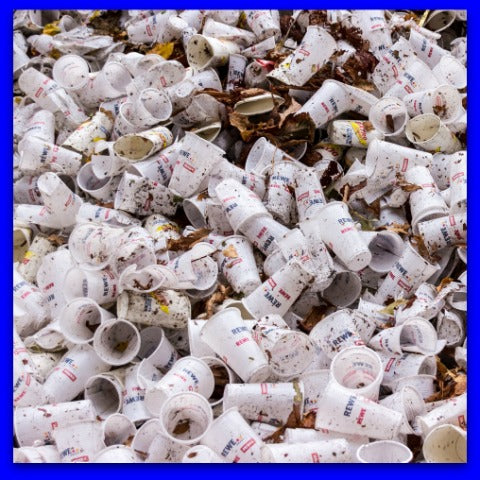
- Plastic straws; we use 500 million each day!
- Styrofoam cups; we trash 25 billion each year!
- We also use a further 17.5 million tons each year of other one-time plastic items.
What Can You Do?
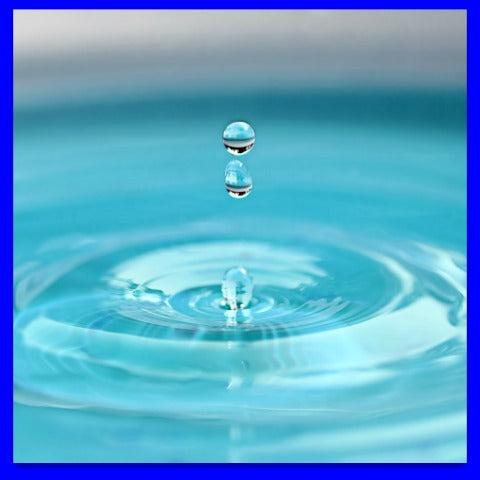
The rain starts with one drop, as they say.
Sure, there are a lot of people, charities and companies focused on cleaning up the larger items in the ocean. But we also have choices as a consumer.
Of course, using our 100% plastic free products and packaging here at The Solid Bar Company is a great start!
You can also change your daily plastic habit. No, we're not talking the credit card type!
Wean yourself off using the everyday throw away, disposable plastic items. Replace them with reusable versions.
By doing the small things:
- Like taking your own reusable bags to the grocery store, or using their paper bags at checkout, helps.
- Take your own steel cutlery to the office to use.
- Have a reusable water bottle in the car.
- Try that drink without a straw.
- Use a travel mug for your Costa or Starbucks.
- If you get a take out, say you don’t need plastic cutlery.
- Recycle what you can. Use recycled packaging.
- Wherever possible buy in bulk to avoid extra packaging too.
Before you know it, these simple acts can all become acquired habits.
These simple acts may not seem like they will make much difference, but when we all do them it will.
What you do matters and it matters to the planet.
This is not someone else's responsibility, it is ours.
There are things we can all join in and do as best we can.
Our actions today are a strong part of the way in which evolution moves us toward tomorrow.
Together we need to deal with these man-made problems that we have helped create - right now.
The rain starts with one drop
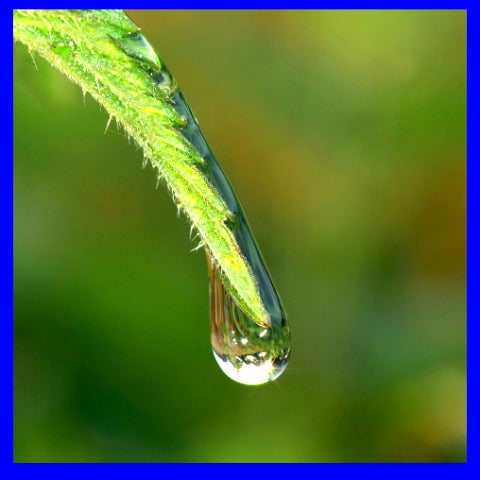
We're doing our bit - are you?
Best wishes to you all - happy recycling.
PS. Make sure you check our B Corp Certification which underlines our eco, green recycling no plastic credentials here.
Sources:
- http://news.nationalgeographic.com/2017/07/plastic-produced-recycling-waste-ocean-trash-debris-environment/
- http://students.arch.utah.edu/courses/Arch4011/Recycling%20Facts1.pdf
- https://www.thebalance.com/plastic-recycling-facts-and-figures-2877886
- https://www.nrdc.org/stories/10-ways-reduce-plastic-pollution
- http://www.onegreenplanet.org/environment/plastic-pollution-in-the-oceans/
- https://www.theguardian.com/environment/2017/jun/28/a-million-a-minute-worlds-plastic-bottle-binge-as-dangerous-as-climate-change
- https://scripps.ucsd.edu/programs/keelingcurve/2013/07/03/how-much-co2-can-the-oceans-take-up/
- http://news.nationalgeographic.com/2017/04/plastic-straws-ocean-trash-environment/
- http://www.edwardhumes.com/garbology/
- http://news.nationalgeographic.com/2017/07/plastic-produced-recycling-waste-ocean-trash-debris-environment/
- http://www.mrcpolymers.com/PlasticRecyclingFacts.php
- https://www.epa.gov/smm/advancing-sustainable-materials-management-facts-and-figures
This blog was updated in October 2024
3 Responses
Jerome
September 30, 2017
This is really interesting, you’re a very skilled blogger with great content. I have joined your feed and look forward to seeking more of your magnificent post. Also, I have shared this post and your website in my social networks – hope you don’t mind!
Janice Kay
September 18, 2017
Hey there! I simply would like to give you a huge thumbs up for your great info you have right here on this post. I just love that your products are thinking of the environment as well as being top quality. I will be coming back to your website for more soon! Thank you Solid Bar Company
Leave a comment
Comments will be approved before showing up.
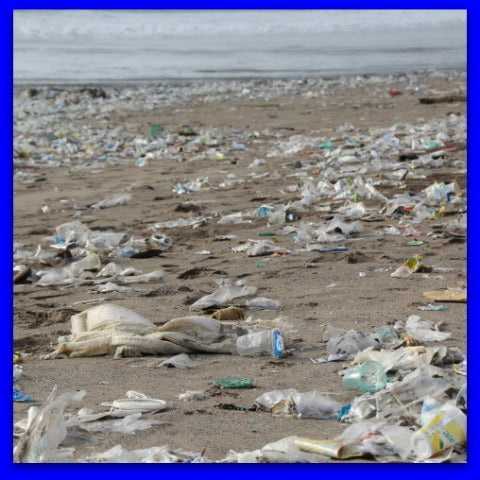



Jayne Delaney
October 16, 2018
A lot of very good points in there and many facts to consume, hopefully not over my next coffee in a plastic cup – will do my best to move away from one-use plastics and I hope that governments do their bit by emphasising that it should be the producers and big commercial concerns who have the biggest power with their advertising budgets to do their bit to help the consumers in all this.